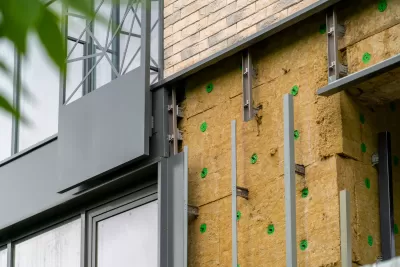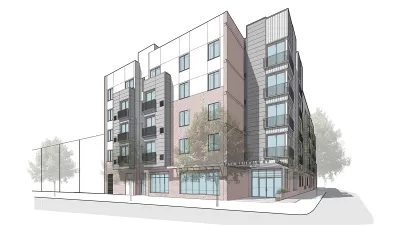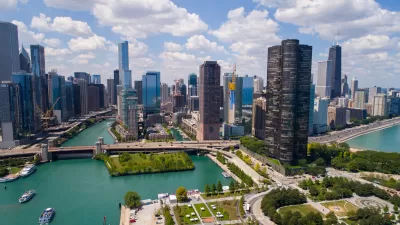Developers in Chicago and around the country are taking notice of a design standard that encourages energy efficiency and sustainable materials.

Multi-family housing developers in Chicago are embracing Passive House design standards to lower their carbon footprints and reduce costs. As Lizzie Kane reports in the Chicago Tribune, “Multifamily developers, particularly those building affordable housing, in Chicago have begun to embrace Passive House design in the last few years thanks to local industry professionals advocating for changes in the city and state building energy codes, as well as buy-in from ComEd, the primary energy provider in the state.”
“Passive House design focuses on making a building tightly sealed by including features such as triple-paned windows and wraparound insulation to keep outside temperatures from creeping in (and noise too), as well as ventilation systems to keep air quality fresh,” Kane explains.
The Passive House standard, originally geared toward single-family homes, is being implemented on around 275 multi-family projects nationwide, according to a study from the Passive House Network. “The study said in order to speed up the pace of Passive House development, local, state and federal policymakers should finance incentive programs, offer professional training, increase provisions in state affordable housing programs and amend compliance rules in energy codes.” Passive House was recently added to Chicago’s Sustainable Development Policy and the city’s building code.
Kane describes other city and state policies in the works that will incentivize the Passive House standard and make it easier to build low-impact, efficient buildings at lower cost. Outside of Illinois, “Massachusetts, New York, Pennsylvania and Connecticut lead the way in multifamily buildings being developed to meet the Passive House standard, with each state having more than 50 properties in the pipeline or already completed, according to Phius’ database.”
FULL STORY: Passive House design is coming to Chicago’s multifamily housing industry

Planetizen Federal Action Tracker
A weekly monitor of how Trump’s orders and actions are impacting planners and planning in America.

Chicago’s Ghost Rails
Just beneath the surface of the modern city lie the remnants of its expansive early 20th-century streetcar system.

San Antonio and Austin are Fusing Into one Massive Megaregion
The region spanning the two central Texas cities is growing fast, posing challenges for local infrastructure and water supplies.

Since Zion's Shuttles Went Electric “The Smog is Gone”
Visitors to Zion National Park can enjoy the canyon via the nation’s first fully electric park shuttle system.

Trump Distributing DOT Safety Funds at 1/10 Rate of Biden
Funds for Safe Streets and other transportation safety and equity programs are being held up by administrative reviews and conflicts with the Trump administration’s priorities.

German Cities Subsidize Taxis for Women Amid Wave of Violence
Free or low-cost taxi rides can help women navigate cities more safely, but critics say the programs don't address the root causes of violence against women.
Urban Design for Planners 1: Software Tools
This six-course series explores essential urban design concepts using open source software and equips planners with the tools they need to participate fully in the urban design process.
Planning for Universal Design
Learn the tools for implementing Universal Design in planning regulations.
planning NEXT
Appalachian Highlands Housing Partners
Mpact (founded as Rail~Volution)
City of Camden Redevelopment Agency
City of Astoria
City of Portland
City of Laramie





























